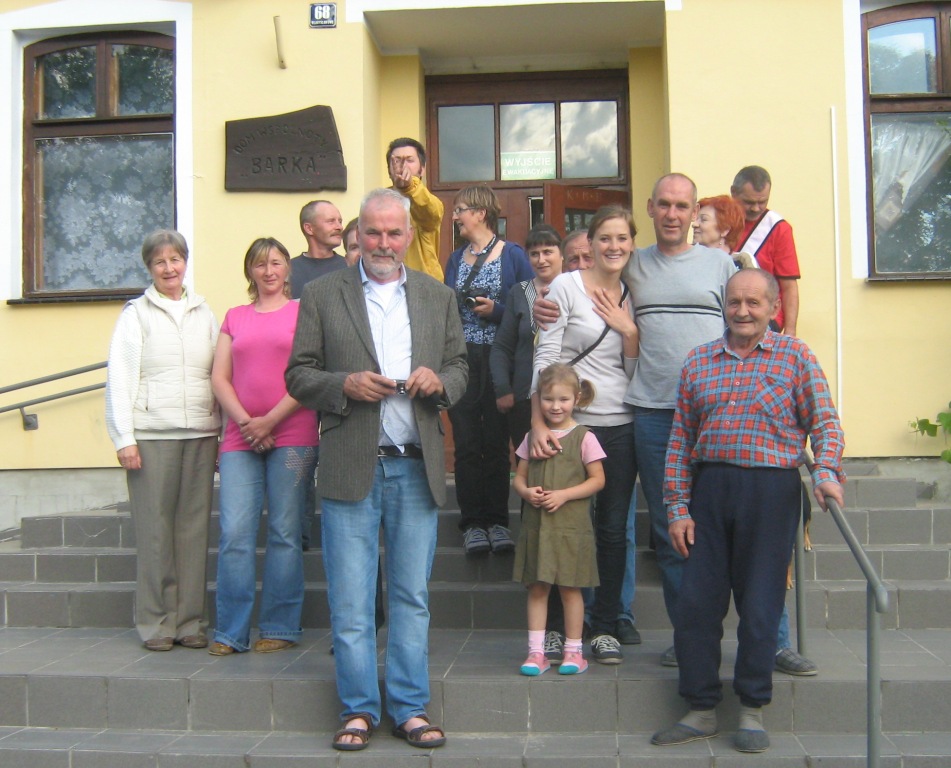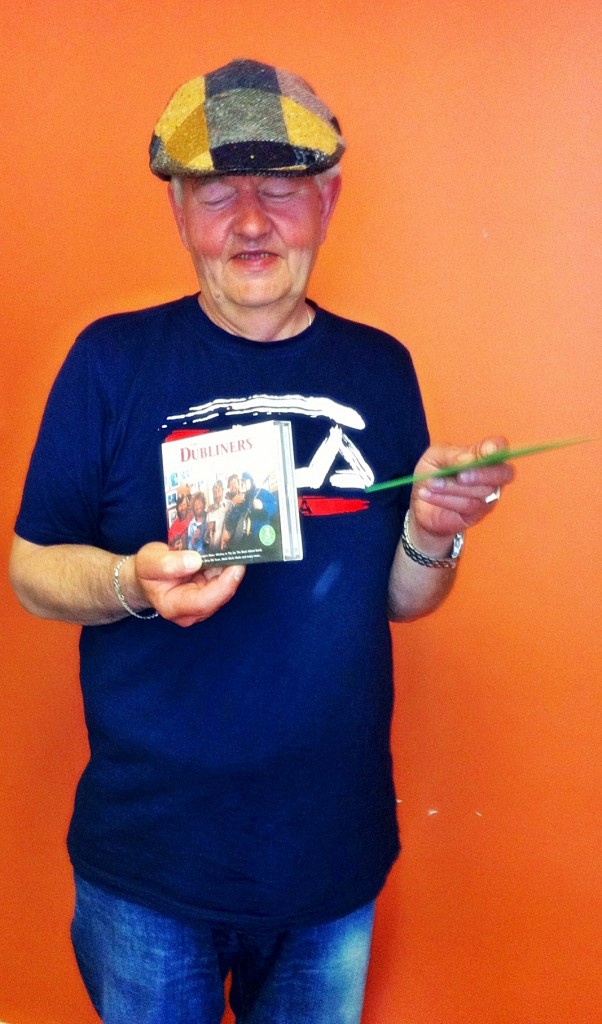My three day study visit provided me with insights into various projects conducted by Barka in Poland, revealing the organization’s multithreaded approach to creating desired social change. I find it challenging to describe my experience. Reaching beyond all I imagined, it took me by surprise and touched me unexpectedly on a professional and personal level.
Assisted by Marysia and Dominik, I started by visiting Barka’s headquarter and two of the Social Integration Centres (CIS) in Poznan to learn about the ways of creating pathways to social integration and opportunities for re-entering the labour market for the long-time unemployed persons.
As I was talked through the history of Barka, I could see every part of the centre was buzzing with activity. I visited the headquarters and impressive archives of polish Street Newspaper. I could witness people participating in sawing and computer workshops. I also had a glance on the carpentry workshop and ongoing building of another school facilities. I also visited already partly renovated by workshop participants building of a new CIS.
Through the provision of work and training and participation in running the centre, CIS aims to change the routine of living an unemployed life, and enable the participants to meet and create socially meaningful bonds. It encourages taking responsibility for the project, and tries to break the culture of passive waiting for change. It creates a chance for all sorts of people presenting themselves to the program with an array of complex personal difficulties – struggling to make ends meet, feeling alienated, suffering from low self-esteem, addiction problem, etc…
However, despite the project leaders’ passion and knowledge, running the centre is by no means an easy task. Participants are not necessarily attracted to the program, even though there are many benefits to be had – these are not necessarily even noticed – but often by existing financial incentives. This creates a challenging mix of individuals genuinely concerned and enjoying the experience, as well as those who are not interested in engaging with the program and try to outsmart the rules or sabotage the values that are so alien to ‘normal’ polish culture of distrust and pathologic individualism.
On the second day of my visit I was scheduled to visit two villages: Ryczywol and Wola Ujska. I was driving with Marcin who talked me thoroughly through all the meanders of setting up a Social Economy Centre. He explained in details how Barka tries to link all the chaotically scattered pieces of supportive legislation and available financial and human resources to empower local communities around Poland.
We were driving through beautiful fields and forests, surrounded by the balsamic scent of pine trees in the morning yet already hot sun. We were passing vast meadows flickering playfully with cornflowers and poppies, and small tranquil villages with storks nesting picturesquely on the electricity polls. We were going further and further to the heart of rural Wielkopolska region, far away from urban centres, far away from traffic, far away from hustle and bustle of city life. Soon after we reached our destination, it occurred to me that we were also far far away from prospective educational and employment opportunities. Despite the beauty of a bright summer day, our 4 hours long meeting with the small group of the local residents was rather depressing. Filled with bitter frustration, they revealed doom and gloom of their existence as they struggled to make ends meet and saw no way to improve the situation. Living in a relatively small yet seriously fragmented community where people don’t talk to each other, barely acknowledge their neighbours… and consider it normal, they seemed permeated with a deep sense of hopelessness, feeling of deprivation and disadvantage. I could sense an overpowering lack of trust in and for each other, forgotten ability to cooperate, scary individualism on the edge of alienation within the community. I was carefully watching how Marcin, who facilitated the meeting, was patiently trying to dig through the layers of hurt, sadness and disappointment, to smooth over harsh judgements thrown back and forth, and mildly start to work them to be the change they wish to see.
The atmosphere of the meeting with the second group that day, was much more cheerful, since the participants were already discussing existing possibilities of themselves creating employment opportunities. It was fantastic to participate in a space that seemed safe enough for everyone to share their ideas, doubts or solutions and where every idea or doubt seemed important enough to be discussed.
The differences in ways of thinking and attitudes between these two neighbouring communities were striking and I became aware that despite the amount of difficulties, it is possible to overcome deeply rooted culture of hopelessness, helplessness and dependency, trying to encourage people to empower themselves and to start building a community.
On the final day of my stay, together with Leszek and Janusz, I visited Chudobczyce, one of several Barka collectives where people live and work together creating a sustainable community. Almost immediately on our arrival we were offered a plain meal – a wonderful simple gesture indicating a warm kindness and in a way old-fashioned polish welcome for a stranger who may bring news from the world as well. Chudobczyce was like a time travel for me, bringing back the memories of grandma’s kitchen and visits to a family farm, excitements over young piglets and fear of geese; the world of work-worn hands, benignant wrinkly smiles and kind interest in one another resulting in ‘real’ meaningful conversations.
I had previously heard about the pig house in Chudobczyce, but I had not known that love for caring for an animal could give one such a deep sense of fulfilment. I knew about learning through work, but I had not suspected how much dignity and sense it could inject into a person’s life. I knew that a couple of ugly pieces of communist architecture apartment blocks constructed without much thought on a patch of land in the middle of nowhere gave a second chance in life to many; I hadn’t realized the extent, the depth and the quality of the change it brought to them. Listening to stories and witnessing the transformation of people I had met before dying on the streets of Dublin, unable to wash themselves, not mentioning overcoming their addiction; and now I was looking at them working, smiling, with glowing skin and glowing eyes, able to dream again – it was a truly enlightening and humbling experience. Seeing the end result of the efforts of work carried out in Dublin is extra motivation for me.
Trying to recreate the culture that nurtures social bonds instead of market competition, Barka does not offer quick fix solutions to social exclusion. It tries to address the complexity of the needs of the individual as well as those of the community. It aims to see the people through the prism of their potential and ability. It strives to create conditions that bring out best and enable individuals to grow.
It gives me hope to know that projects like these exist. They offer people a sense of dignity and self-respect, which in turn leads to them following a more positive journey through life.
Joanna Rutkowska
Employment Coordinator in Barka Dublin




